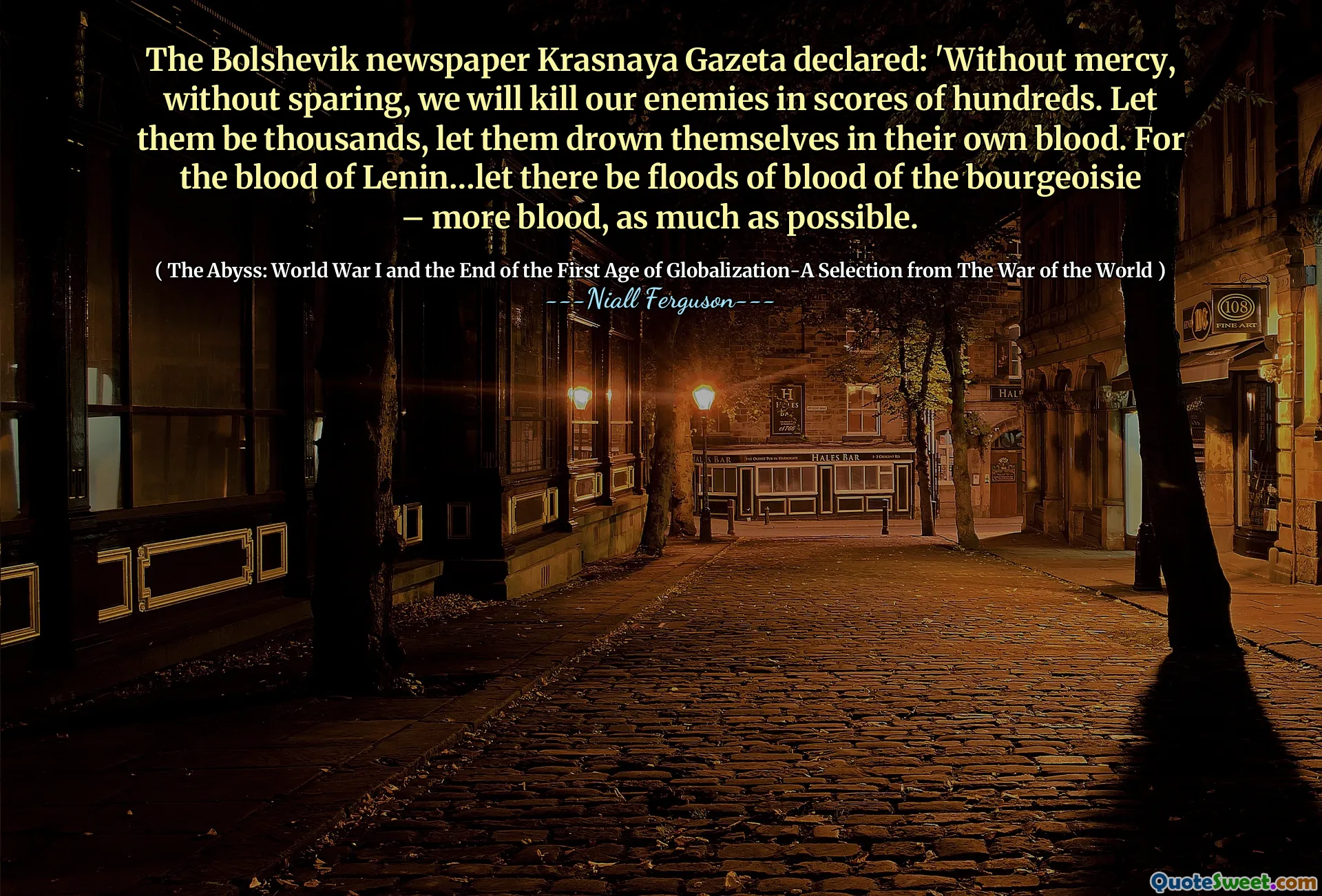
The Bolshevik newspaper Krasnaya Gazeta declared: 'Without mercy, without sparing, we will kill our enemies in scores of hundreds. Let them be thousands, let them drown themselves in their own blood. For the blood of Lenin…let there be floods of blood of the bourgeoisie – more blood, as much as possible.
The Bolsheviks, under the leadership of Lenin, exhibited a fierce and unrelenting attitude towards their enemies during the early days of the Revolution. In the newspaper Krasnaya Gazeta, they publicly proclaimed their intentions to slaughter their adversaries en masse, reflecting an ideology rooted in violent retribution. This statement underscores the radical nature of the Bolshevik movement, where the call for bloodshed was justified as a means of achieving their revolutionary goals.
This declaration, as cited in Niall Ferguson's "The Abyss," reveals the depths of brutality the Bolsheviks were willing to embrace in the name of ideology. The emphasis on "more blood" signifies a relentless pursuit of power and the dismissal of compassion toward perceived enemies. The rhetoric communicates a grim certainty that justifies mass violence as a tool for social and political transformation, thus marking a pivotal moment in the history of revolutionary movements and their often bloody consequences.











